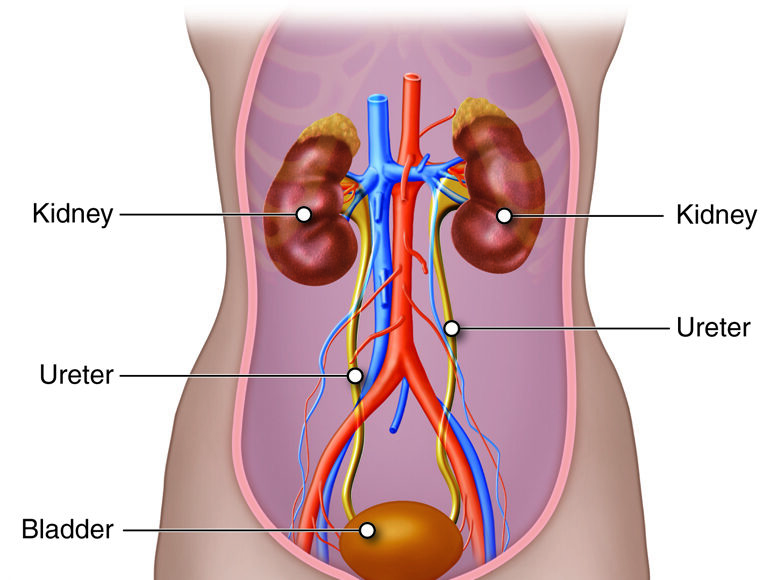Typhoid fever is a severe illness that can cause various health problems. In some cases, it can even lead to kidney failure. If you are experiencing any of the symptoms of typhoid fever, it is crucial to seek hospital care right away. This article will discuss the relationship between typhoid and kidney problems and the treatment options available.
Let’s get started.
Which Part of the Body Does Typhoid Fever Attack?
The typhoid fever bacteria usually attack the small intestine first. From there, it can spread to the blood and lymph nodes. In severe cases, it can also affect other organs like the liver, spleen, and kidneys. The most well-known symptoms of typhoid fever are a high fever, general weakness, and stomach pains. It can also cause red spots on the chest and abdomen. If left untreated, typhoid fever can be fatal. For more details, you can check on AskApollo.
Signs and Symptoms of Typhoid Fever
Typhoid fever is a bacterial infection that typically affects the intestines and stomach. The bacteria are usually spread through contaminated food or water. Symptoms of typhoid fever can include:
- Fever
- Headache
- Abdominal pain
- Diarrhea or constipation
- Loss of appetite
- Muscle aches
- Fatigue
- Rose-colored spots on the chest
If untreated, typhoid fever can lead to severe complications, such as kidney failure or internal bleeding. If you think you may have typhoid fever, it’s important to see a healthcare provider right away. Hospitalization is often necessary to treat the infection.
Causes of Typhoid Fever
Typhoid carriers
A small number of people who recover from typhoid fever become carriers of the Salmonella Typhi bacteria. They may not feel sick, but they can spread the infection to others. Typhoid carriers often work as food handlers or in close contact with other people, such as healthcare workers.
You can get typhoid fever if you eat food or drink water contaminated by a person’s typhoid’s feces. Contamination occurs when an infected person prepares food without washing their hands properly after going to the bathroom. The disease is more common in areas where sanitation and hygiene are poor.
Fecal-oral transmission route
The most common way typhoid is spread is through contaminated food or water. This usually happens in countries where sanitation and hygiene are poor. The bacteria can enter the water supply through sewage contamination. It can also contaminate food prepared by someone who has the infection. You can also get typhoid fever if you have close contact with someone who has it. This is more common in crowded places, such as refugee camps or prisons.
When to see a Doctor?
If you experience any of the above symptoms, you must see a doctor as soon as possible. Typhoid can lead to serious complications if not treated promptly and adequately. In some cases, typhoid can cause kidney problems. If you are hospitalized with typhoid, healthcare professionals will closely monitor you to ensure your condition does not deteriorate.
If you are traveling to an area with a typhoid risk, it is important to get vaccinated against the disease. Vaccination is the best way to protect yourself from typhoid. However, even if you are vaccinated, you should still take steps to avoid contaminated food and water. If you do develop typhoid, it is crucial to seek medical treatment as soon as possible.
How to Diagnose Typhoid Fever?
There are a few ways to diagnose typhoid fever. One is through a physical exam, which can often reveal an enlarged spleen or liver. A blood test can also be performed to look for antibodies the body produces in response to the infection. Finally, a stool sample may be taken and analyzed for the presence of the bacteria that cause typhoid fever. Treatment for typhoid fever usually involves antibiotics, and hospitalization may be necessary in some cases.
If you think you or someone you know has typhoid fever, it is important to see a doctor immediately. Typhoid fever can lead to serious complications if it is not treated promptly. In rare cases, typhoid fever can even be fatal. Early diagnosis and treatment are essential to preventing serious health problems.
Prevention:
There are several ways you can prevent yourself from getting typhoid, including:
- Getting vaccinated against the disease
- Practicing good hygiene, such as washing your hands regularly
- Avoiding contaminated food and water
- Not traveling to areas where the disease is common
If you get typhoid, you must see a doctor as soon as possible so you can start treatment. Treatment usually involves antibiotics, and most people recover from the disease within a few weeks. In some cases, typhoid can lead to serious complications, such as kidney problems.
The Bottom Line
Kidney problems can be a complication of typhoid fever, but it is rare. If you develop kidney problems while you have typhoid fever, it is crucial to seek medical attention immediately to receive the proper treatment. Treatment for kidney problems associated with typhoid fever typically includes hospitalization and intravenous fluids.
Apart from this if you are interested to know more about Get Rid of Type 2 Diabetes then visit our Health category













